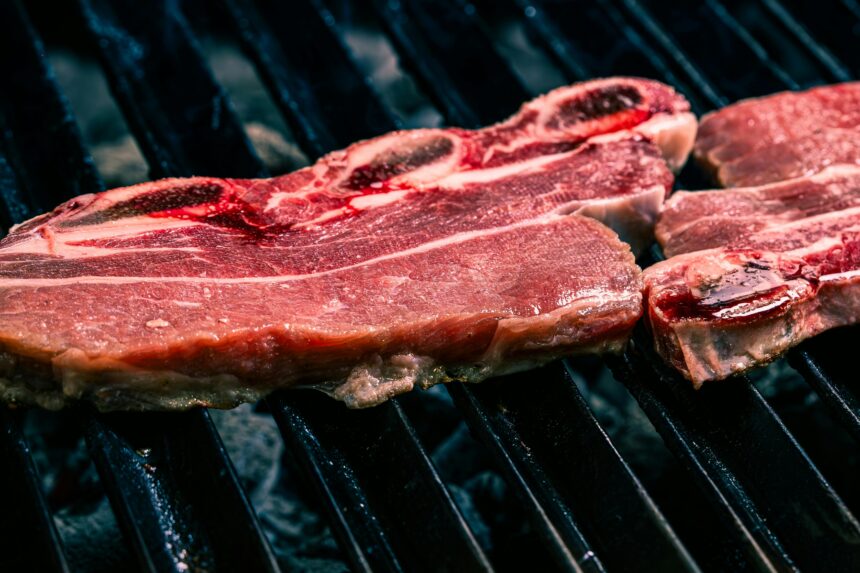Maintaining good cholesterol levels is critical for cardiovascular health. While cholesterol is not fundamentally evil (our bodies require it to function), excessive levels of “bad” LDL cholesterol can cause plaque accumulation in arteries, increasing the risk of heart disease and stroke. Here are seven foods known for raising cholesterol and why they should be avoided or minimized.
Fried Foods
Avoid fried foods, particularly those deep-fried in hydrogenated oils, as they contain high trans fat levels. These fats increase bad cholesterol (LDL) while decreasing good cholesterol (HDL). French fries, fried chicken, and doughnuts are foods that contain harmful fats and are also heavy in calories, contributing to weight gain—another risk factor for high cholesterol. To limit oil usage, bake or air fry instead. You can also use heart-healthy oils like olive or avocado oil in moderation.
Full-fat dairy products
While dairy products include calcium and vitamins, full-fat options such as whole milk, butter, cream, and cheese are heavy in saturated fat. These fats can raise LDL cholesterol levels and promote plaque formation in your arteries. A healthier alternative is to choose low-fat or fat-free dairy products. You might also try plant-based substitutes like almond milk, coconut yogurt, or soy cheese.
Processed Meats (Bacon, Sausages, Hot Dogs)
Avoid processed meats, including bacon, sausages, and hot dogs. Processed meats are often high in harmful fats, particularly saturated fat, as well as cholesterol. They also contain a lot of sodium, which can lead to high blood pressure—a risk factor for heart disease along with high cholesterol. According to studies, eating processed meats regularly raises your risk of cardiovascular disease and certain malignancies. Replace processed meats with lean protein sources such as chicken breast, turkey, or fish. Plant-based substitutes, such as tofu or tempeh, are also viable options.
Baked goods and pastries
Baked products, such as cookies, pastries, and cakes, frequently contain significant quantities of saturated and trans fats, primarily from butter, shortening, and margarine. They are also typically high in refined sugars and simple carbs, which can lead to elevated cholesterol and triglycerides. Make your own baked goodies with healthy fats like olive oil, whole wheat flour, and natural sweets like honey or applesauce.
MUST READ; What is Preeclampsia?
Red Meat
Avoid red meats like beef, hog, and lamb as they contain significant levels of saturated fat and cholesterol. Regular eating of red meat has been associated to elevated LDL cholesterol levels, which raises the risk of cardiovascular disease. The cooking method can also make a difference—grilling or frying red meat can produce hazardous substances such as heterocyclic amines (HCAs) and polycyclic aromatic hydrocarbons (PAHs), which have been linked to cancer. Replace red meat with lean proteins such as poultry, fish, or plant-based alternatives such as legumes, lentils, and beans. Choose grilled, roasted, or steaming cooking styles.
Shellfish (Shrimp, Lobster, Crabs)
Avoid shellfish, including shrimp, lobster, and crabs. Shellfish contain beneficial omega-3 fatty acids, but they are also naturally rich in cholesterol. Shrimp, for example, is one of the highest-cholesterol seafood, with a 3-ounce meal carrying approximately 180 mg of cholesterol, or more than half of the recommended daily consumption for healthy adults. Instead of shellfish, opt for fatty fish like salmon or mackerel, which are strong in omega-3 fatty acids and promote heart health without raising cholesterol levels.
Fast Food
Burgers, fried chicken sandwiches, and pizza are common fast food meals that contain trans fats, saturated fats, and high levels of sodium. These components all lead to elevated LDL cholesterol levels, which can raise the risk of heart disease. Frequent fast food consumption has been associated to obesity, insulin resistance, and metabolic syndrome. Choose home-cooked meals so you can control the ingredients and cooking methods. If you need something quick, try grilled chicken salad or a whole grain wrap with lots of veggies.
In conclusion high cholesterol is frequently a hidden condition, meaning there are no obvious symptoms, yet it can silently harm your cardiovascular system. Making conscientious eating choices not only lowers bad cholesterol, but also increases good cholesterol, allowing you to live a healthier and longer life.


